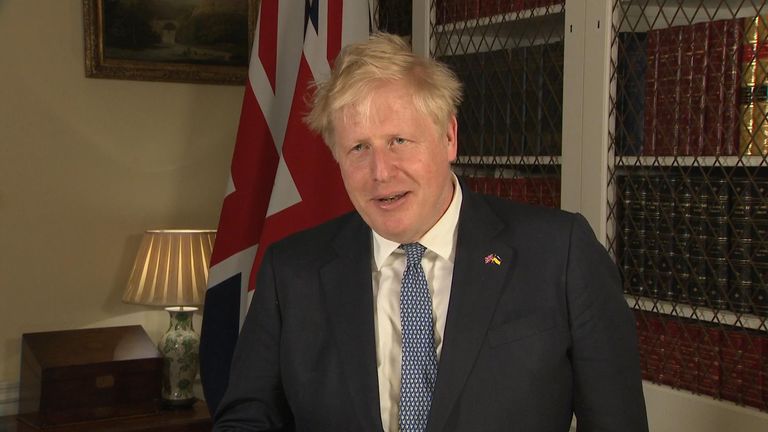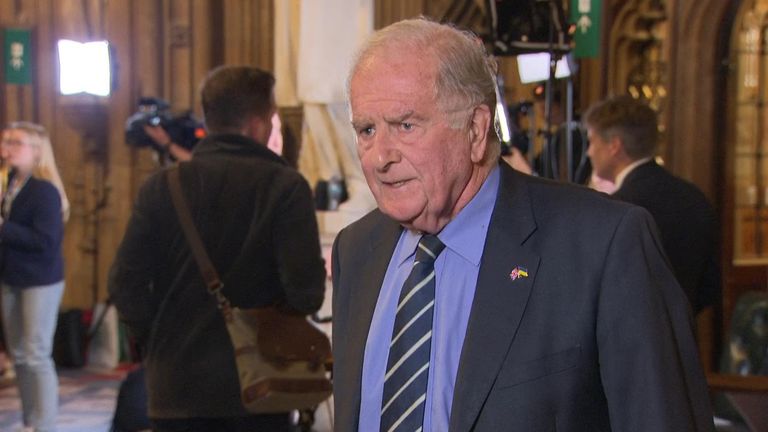[ad_1]
It was a vote the PM was desperate to avoid.
And when it came, one that Boris Johnson was keen to put behind him quickly, calling the vote as soon as possible after the trigger threshold (54 letters of no confidence) had been reached, and then declaring the result “decisive” and “convincing” once it was over.
Mr Johnson is a leader who is clear he has won and who wants to draw a line under this whole sorry saga and move on.
But the PM knows too, despite his bravado, that 148 MPs declaring no confidence in his leadership is a body blow.
His supporters are left privately disappointed, and so they should be. Boris Johnson’s victory on Monday was less convincing than that of Theresa May’s confidence vote in 2018 when she commanded the support of 63 per cent of her MPs against 59 per cent for the current PM. Six months after that vote Ms May was forced to resign.
To really have had any hope of turning the page on Monday, the PM would have needed a far bigger show of support than this.
Read more:
Conservative confidence votes in numbers
Conservative MPs back PM , but only just – so what happens now?
Boris Johnson survives for now… But who are the frontrunners for his job if PM’s time runs out?
Others point out that, while the PM survived the vote, protection is not guaranteed. While under current rules a sitting PM should not have to face another challenge for 12 months, there’s nothing to prevent MPs sending in letters once again and asking 1922 committee chairman Sir Graham Brady to change the rules if the situation dramatically deteriorates in the coming months. Such a move has been considered before.
But what is perhaps the key question is how sustainable Mr Johnson’s leadership now is, regardless of the specifics of the Conservative Party rules.
To have 148 of your own MPs decide they don’t have confidence in you matters, whether it meets a threshold for action or not.
How will the PM run his programme of government if even a portion of those rebels decide to go on strike? Forty serial rebels are enough to rob the prime minister of his majority in the House of Commons, and with it his ability to get any legislation through.
The only thing this vote really settles is the contours of the Conservative party’s internal civil war. The rebels appear emboldened not cowed, with one very senior figure telling me shortly after the vote that it was now “time for the cabinet to show some leadership and realise the game is up for the PM”.
It is but two-and-a-half years ago that Mr Johnson won that landslide victory and in that time he has gone from being all-powerful to deeply damaged, from untouchable to badly tarnished, from adored to disdained – or worse. It is hard to see how he recovers from this, even if he limps on.
His allies like to say never write Boris Johnson off, but history tells us that Tory leaders never shake off the damage of a confidence vote once it comes, whatever the outcome. For now he stays in office, but is he really in power?
[ad_2]



